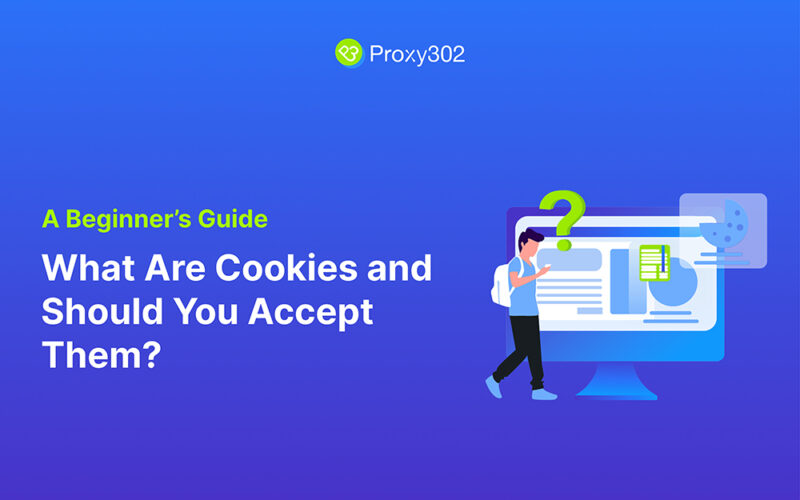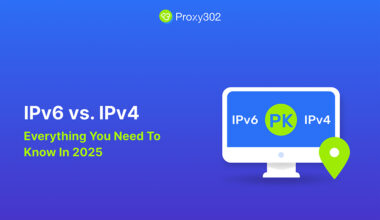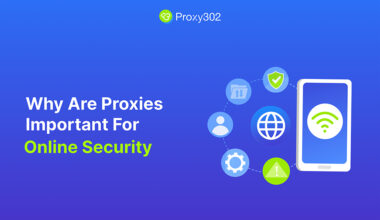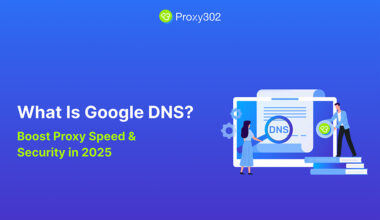In today’s digital age, browsing the internet comes with a common question: “Do you accept cookies?” You’ve likely clicked “Accept” without much thought, but what exactly are cookies, and how do they affect your online experience? Are they harmless, or should you be cautious? Let’s break it down in simple terms to help you understand what cookies are, what happens when you accept them, and how you can take control of your online privacy.
What Are Cookies?

Imagine visiting a coffee shop every day, and the barista remembers your name and your favorite order. Convenient, right? That’s essentially what cookies do online. Cookies are small text files stored on your browser when you visit a website. They act like memory aids for websites, helping them remember your preferences, login details, or even the items in your shopping cart.
For example, if you log in to an e-commerce site and add products to your cart but don’t check out, cookies ensure that your items are still there when you return later. They make browsing smoother and more personalized. However, not all cookies are the same, and some may raise privacy concerns.
Types of Cookies
Not all cookies are created equal. Here’s a breakdown of the main types you’ll encounter:
1. Essential Cookies
These are the good guys. Essential cookies are necessary for a website to function properly. For instance, they help you log in securely or navigate between pages without losing your session. Without these, many websites simply wouldn’t work.
2. Performance/Analytics Cookies
These cookies collect data about how you use a website, such as which pages you visit most often or how long you stay on a page. They help website owners improve their platforms by analyzing user behavior. While they don’t typically identify you personally, they still track your activity.
3. Functional Cookies
These cookies remember your preferences, like your language settings or region. For example, if you always set a site to display prices in USD instead of Euros, functional cookies handle that for you.
4. Advertising/Targeting Cookies
Now, here’s where things get tricky. These cookies track your behavior across different websites to show you personalized ads. Ever searched for a pair of shoes and then seen ads for the same shoes on every website you visit? That’s advertising cookies at work. They’re often placed by third-party companies and can feel invasive.
What Happens When You Accept Cookies?
When you click “Accept Cookies,” you’re essentially giving the website permission to store and access certain data about your browsing behavior. Here’s what happens:
1. Enhanced User Experience
Cookies make your browsing more seamless. They save login details, remember your preferences, and make websites load faster. For example, if you’re using a proxy service like Proxy302, cookies might remember your preferred proxy settings, making it easier to reconnect without reconfiguring.
2. Personalized Content
Websites can use cookies to tailor content to your interests. For instance, streaming platforms like Netflix use cookies to recommend shows based on your viewing history.
3. Targeted Advertising
If you’ve ever wondered why ads for something you searched for keep following you around the internet, cookies are the reason. Advertisers use them to track your activity and deliver ads they think you’ll click on.
4. Data Sharing with Third Parties
In some cases, websites may share cookie data with third-party companies, such as advertisers or analytics platforms. This can lead to privacy concerns, especially if you’re unaware of how your data is being used.
Are Cookies Safe?
This is the million-dollar question. The short answer? Cookies themselves are not harmful—they’re just text files that store data. However, the way they’re used can raise privacy concerns. Here’s what you need to know:
The Good
- Cookies improve your browsing experience by making websites more functional and personalized.
- Essential and functional cookies are generally safe and beneficial.
The Bad
- Advertising cookies can feel intrusive, as they track your activity across multiple sites.
- Some cookies may store sensitive information, like login credentials, which could be vulnerable if not encrypted.
The Ugly
- In rare cases, cookies can be exploited by hackers in cyberattacks, such as “cookie hijacking,” where attackers steal session cookies to gain unauthorized access to accounts.
Thankfully, privacy laws like the GDPR (General Data Protection Regulation) in Europe and the CCPA (California Consumer Privacy Act) in the U.S. require websites to disclose their use of cookies and give users the option to opt out.
Should You Accept Cookies?
The answer depends on the situation. Here’s a quick guide:
When It’s Okay to Accept Cookies
- Trusted Websites: If you’re visiting a reputable site that you use regularly, accepting cookies can enhance your experience.
- Essential Functionality: Some websites won’t work properly without cookies. For example, online banking platforms often require essential cookies for security.
When to Be Cautious
- Unfamiliar Websites: If you’re visiting a site for the first time and it requests extensive cookie permissions, proceed with caution.
- Excessive Tracking: If a site’s cookie policy mentions extensive data sharing with third parties, consider declining non-essential cookies.
How to Manage Cookies
Taking control of your cookies is easier than you think. Here are some practical tips:
1. Adjust Browser Settings

Most browsers allow you to block third-party cookies or even all cookies. For example:
- In Chrome, go to Settings > Privacy and Security > Cookies and Other Site Data.
- In Safari, go to Preferences > Privacy.
2. Clear Cookies Regularly
Clearing your cookies periodically can help protect your privacy and free up storage space. Just keep in mind that this will log you out of most websites.
3. Use Privacy-Focused Tools
Consider using browsers like Brave or Firefox, which prioritize privacy. You can also install extensions like uBlock Origin to block trackers.
4. Leverage Proxy Services
If you’re serious about privacy, using a proxy service like Proxy302 can add an extra layer of protection. With over 65 million IPs globally, Proxy302 allows you to browse anonymously, target specific cities with residential proxies, and avoid invasive tracking. Plus, its pay-as-you-go model means you don’t need a monthly subscription—perfect for flexible use!
Conclusion
Cookies are a double-edged sword. On one hand, they make browsing the web faster and more personalized. On the other, they can compromise your privacy if misused. The key is to stay informed and take control of your cookie settings. Accept cookies when they enhance your experience but don’t hesitate to decline them on unfamiliar or untrustworthy sites.
If you’re looking for a way to browse securely and avoid invasive tracking, consider using a proxy service like Proxy302. With its global IP coverage, city-level targeting, and pay-as-you-go model, Proxy302 is an excellent tool for maintaining privacy while enjoying a seamless online experience. Ready to take control of your online privacy? 👉 Start Your Free Trial Now 👈and experience the most flexible proxy solution available. No monthly subscription, just pay for what you use.









4 comments
I don’t think the title of your article matches the content lol. Just kidding, mainly because I had some doubts after reading the article.
Your point of view caught my eye and was very interesting. Thanks. I have a question for you.
Thanks for sharing. I read many of your blog posts, cool, your blog is very good.
Thank you for your sharing. I am worried that I lack creative ideas. It is your article that makes me full of hope. Thank you. But, I have a question, can you help me?